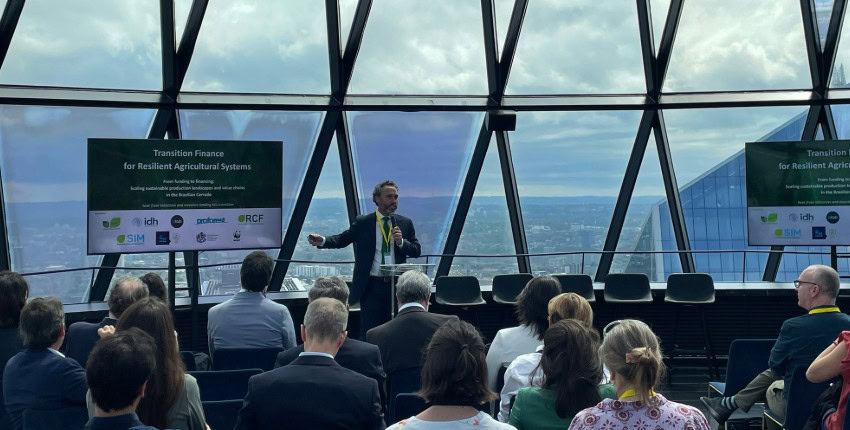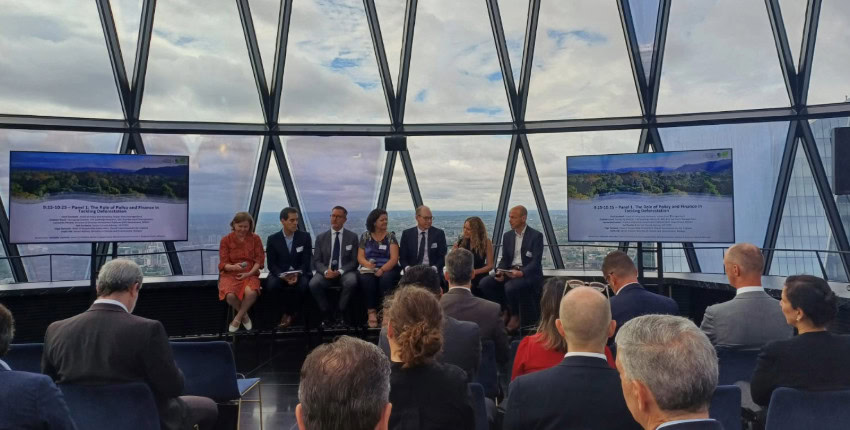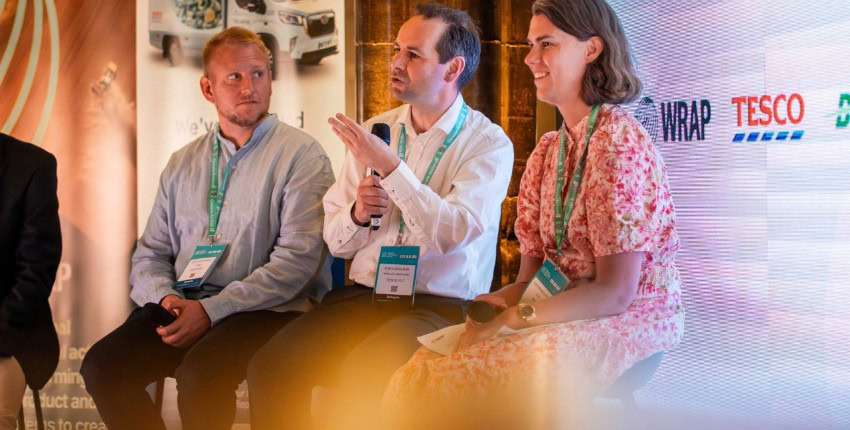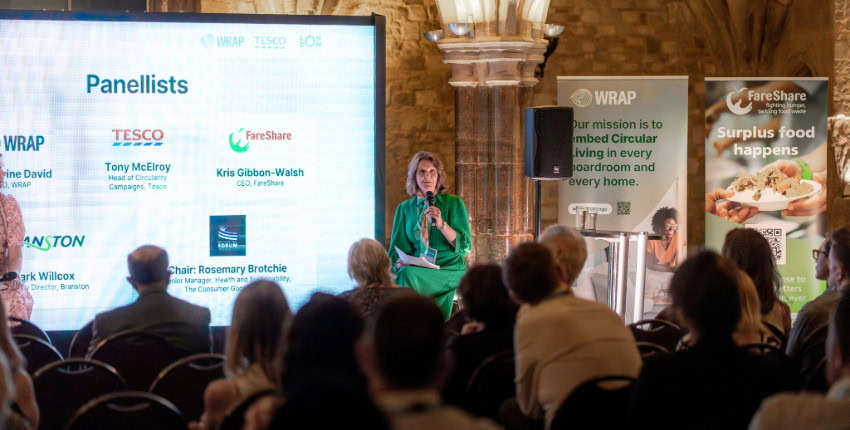At London Climate Action Week (LCAW) 2025, The Consumer Goods Forum (CGF) showcased its commitment to building climate-resilient, deforestation-free, and socially responsible supply chains. With people and planet at the heart of our priorities and across several engagements, the CGF focused on practical collaboration and finance innovation to advance sustainability in complex global systems.
Mobilising Transition Finance for the Brazilian Cerrado
As part of LCAW, the CGF co-hosted “Transition Finance for Resilient Agricultural Systems” – an impactful session focused on scaling investment in sustainable production landscapes in Brazil’s Cerrado biome.
The event was delivered in partnership with IDH, Olab, Proforest, Sustainable Investment Management (SIM), The World Business Council for Sustainable Development (WBCSD), the Tropical Forest Alliance, and The World Wide Fund, and convened over 80 participants from across finance, business, and civil society.

The discussion centred on how to mobilise and align finance to support climate-resilient and forest-positive agricultural systems drawing on practical lessons from the Cerrado region.
CGF’s Sustainable Landscapes Partnership (SLP) – in partnership with WBCSD’s Soft Commodities Forum and supported by Proforest – served as the core case study during the session. The SLP is already transforming over 800,000 hectares and working with 700+ farms, aligning its work with Brazilian government priorities and local realities to deliver deforestation-free and socially inclusive production systems.
Joseph James, Sustainability Manager, Sainsbury’s spoke on behalf of our Forest Positive Coalition and delivered a powerful call to action, underlining the need to scale finance for nature and climate across high-risk commodity-producing landscapes. He underscored that the SLP is a proven model – already unlocking over $10 million in finance, with an additional $2.4 million leveraged – and invited others to join in expanding its reach and impact.
More on the Sustainable Landscapes Partnership.
Driving Cross-Sector Collaboration on Food Systems and Climate
At the Climate Innovation Forum, part of LCAW’s central programme, Rosemary Brotchie, CGF’s Senior Manager for Health & Sustainability, moderated a session “Creating a Lasting Impact: Catalysing Global Action to Combat Food Waste” focused on accelerating climate action in food
systems through cross-sector partnership.
The panel, with WRAP’s CEO, Catherine David, Tony McElroy, Tesco’s Head of Circularity Campaigns, FareShare’s CEO, Kris Gibbon-Walsh, and Mark Willcox, Branston’s Agronomy Director, explored how actors across the value chain – from retail and redistribution to agriculture – can collaborate to reduce emissions, prevent food loss, and strengthen resilience.
The discussion reinforced the importance of business leadership and coordinated action to deliver measurable progress on both environmental and social outcomes.
“I was delighted to chair an important panel on how businesses can be doing more. It’s really encouraging that this mix of thought leaders and industry champions are making sure that tackling food waste is rising on the global agenda. With a third of all the food we grow wasted, contributing 10% of global hashtag#GHG emissions, we have no choice but to act.” – Rosemary Brotchie
Our Food Waste Coalition of Action is working to accelerate the industry’s ambition towards net zero. Current global estimates are that food loss and waste (FLW) accounts for 10% of all greenhouse gas (GHG) emissions, approximately a quarter of all freshwater use, and the total cost of FLW is estimated to be over $1 trillion. Reducing food loss and waste both upstream and downstream is a key opportunity to mitigate the effects of climate change, and should be part of industry climate action plans.
More on the climate opportunity of food waste reduction.
Advancing Member-Led Solutions
CGF’s participation at LACW reflects our role in supporting the consumer goods industry to turn sustainability ambitions into action. From scaling transition finance to facilitating collaboration across food systems, we remain focused on enabling member-driven progress that benefits both people and the planet.
Learn more about the CGF’s work for people and planet and get involved.



